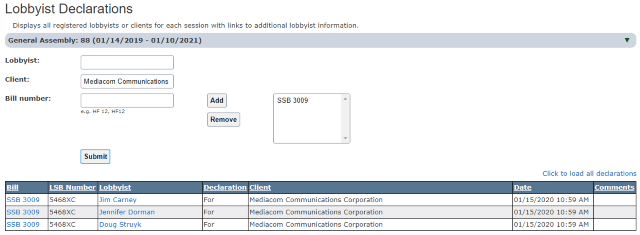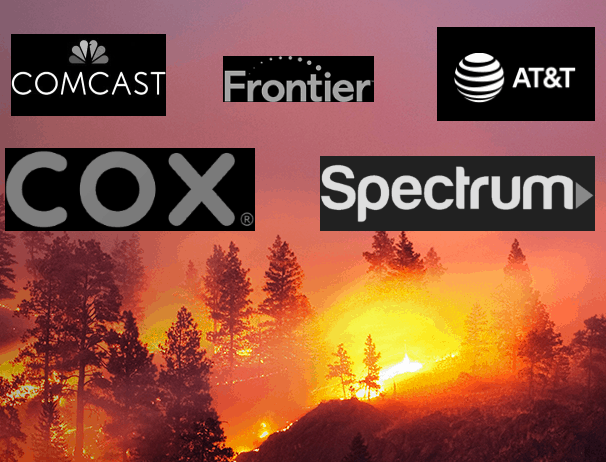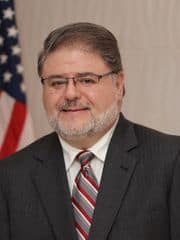
Only 40% of rural Canadians today have suitable internet access and a Canadian minister is now “open to the idea” of transforming broadband in the country into a universally available public utility.
Minister for Rural Economic Development Maryam Monsef admits that Canada’s current reliance on private cable and phone companies like Bell, Telus, and Rogers has kept large parts of Canada from getting affordable, 21st century internet access. Creating a public broadband utility that would provide universal access may be the best solution to reaching areas considered too unprofitable to serve by private companies.
The impetus to consider creating one of the world’s largest publicly owned broadband providers comes as a result of the COVID-19 pandemic, which has forced millions of Canadians to work from home. But with well under half of rural Canada lacking high speed internet service, educators, medical personnel, and business workers find themselves unable to connect.
Nancy and Jeff Boss of Flamborough, Ont., live 10 minutes outside of Hamilton. They are “off the grid” for high speed internet by just 100 meters. To bring cable broadband to their home, the local cable company quoted an installation price of $27,000. As a result, the Boss family relies on a cell phone data plan that costs $150 a month and offers 100 GB of usage on a 4G LTE network. The family often exceeds its usage allowance, and told CBC’s “The Current” their monthly bill has crept up to $500 in usage charges at times.
Nancy Boss is a school teacher, and life without internet in the COVID-19 era of online classes is difficult.
“I am struggling daily with my lessons, I can’t do live lessons as the minister of education is requiring us,” Boss told CBC Radio, adding that her own children’s education is being affected too. “It’s really hard for our kids to participate in their lessons [and] it’s sad, they can’t chat with their friends who they miss very much.”

Monsef
The Liberals promised $5-6 billion for rural internet expansion in the 2019 budget as part of a party pledge to get 100% of Canadians connected to high-speed internet by 2030. But that was before the pandemic struck, making internet connectivity more essential than ever before.
Broadband advocacy group OpenMedia’s Laura Tribe says the government’s promises are nice, but the target date remains 2030 — a decade away. She argues people need internet access today. Tribe says the weak link is relying on corporate cable and phone companies to do the work to reach rural Canada. Despite repeated funding efforts and ongoing lobbying, Tribe believes many of the country’s largest providers have dragged their feet on rural expansion for years, noting they operate in the interest of shareholders, not rural Canadians. Recently, Tribe believes many of Canada’s largest telecom companies have made rural Canadians “pawns” in a greater debate about deregulation and wireless spectrum for 5G. When providers see their business interests threatened, they warn lawmakers and regulators the result may be further delays in rural internet expansion.
That is why Tribe advocates declaring broadband service to be an essential public utility, putting the onus on the government to complete “last mile” buildouts to individual rural homes and businesses like the Boss family as quickly as possible. On that point, Monsef seemed to agree.
“One of the things that the federal government can do is to invest in that last mile, where the business case for the private providers is not the same,” Monsef, who also serves as the MP for Peterborough-Kawartha said. “Once you do connect Canadians, though, those investments will pay off because that connectivity leads to economic development and a higher quality of life.”
When pressed about her support for declaring broadband service a national public utility, Monsef said she was open to the idea and having a debate on what solution will work best for rural Canada.
“What COVID has done is create an opportunity for a resurgence of good ideas, and that’s a good idea that I’m open to,” Monsef said. “This is among the many good ideas that we are considering: What are the pros? What are the cons? How do we get it done? Who’s on board?”
Minister for Rural Economic Development Maryam Monsef appeared on CBC Radio Ottawa’s morning show to discuss the state of rural broadband in Canada. (9:58)
CBC Radio One’s “The Current with Matt Galloway” spent a half hour exploring the plight of rural Canadians expected to work at home who lack suitable internet access. Is it time for Canada to make broadband service a public utility? (24:07)


 Subscribe
Subscribe Lobbyists for Mediacom, one of America’s medium-sized cable operators, are reportedly behind the latest effort to curtail public broadband in the state of Iowa with a new bill designed to make life difficult for municipalities trying to get internet access to their residents.
Lobbyists for Mediacom, one of America’s medium-sized cable operators, are reportedly behind the latest effort to curtail public broadband in the state of Iowa with a new bill designed to make life difficult for municipalities trying to get internet access to their residents.
 More Californians are complaining to state officials about their cable television, internet, and phone service than the energy utilities implicated in causing deadly wildfires that left customers without power for days or weeks.
More Californians are complaining to state officials about their cable television, internet, and phone service than the energy utilities implicated in causing deadly wildfires that left customers without power for days or weeks.
 Earlier this year, California’s largest investor-owned utility, Pacific Gas & Electric (PG&E), filed for bankruptcy protection after estimating it was liable for more than $30 billion in damages from recent wildfires. An investigation found equipment owned by PG&E was responsible for starting the worst wildfire in California history. The November 2018 Camp Fire killed 85 people and destroyed the town of Paradise. Yet the Customer Affairs Branch received fewer complaints about PG&E than it received regarding AT&T, Charter Spectrum, Frontier, Cox, and Comcast XFINITY.
Earlier this year, California’s largest investor-owned utility, Pacific Gas & Electric (PG&E), filed for bankruptcy protection after estimating it was liable for more than $30 billion in damages from recent wildfires. An investigation found equipment owned by PG&E was responsible for starting the worst wildfire in California history. The November 2018 Camp Fire killed 85 people and destroyed the town of Paradise. Yet the Customer Affairs Branch received fewer complaints about PG&E than it received regarding AT&T, Charter Spectrum, Frontier, Cox, and Comcast XFINITY.
 T-Sprint’s argument is that this transaction will accelerate the deployment of 5G technology in a war for 5G supremacy with China. But exactly what technology is deployed, on what spectrum, using small cells or macro cell towers, makes a lot of difference. China’s wireless companies are owned and controlled by the Chinese government, which is also underwriting some of the costs. America’s networks are financed with private capital (and customer bills). T-Sprint’s 5G plans are also far less ambitious than those from AT&T and Verizon, and the cost to long-term competition is too high. The FCC should know that.
T-Sprint’s argument is that this transaction will accelerate the deployment of 5G technology in a war for 5G supremacy with China. But exactly what technology is deployed, on what spectrum, using small cells or macro cell towers, makes a lot of difference. China’s wireless companies are owned and controlled by the Chinese government, which is also underwriting some of the costs. America’s networks are financed with private capital (and customer bills). T-Sprint’s 5G plans are also far less ambitious than those from AT&T and Verizon, and the cost to long-term competition is too high. The FCC should know that.

